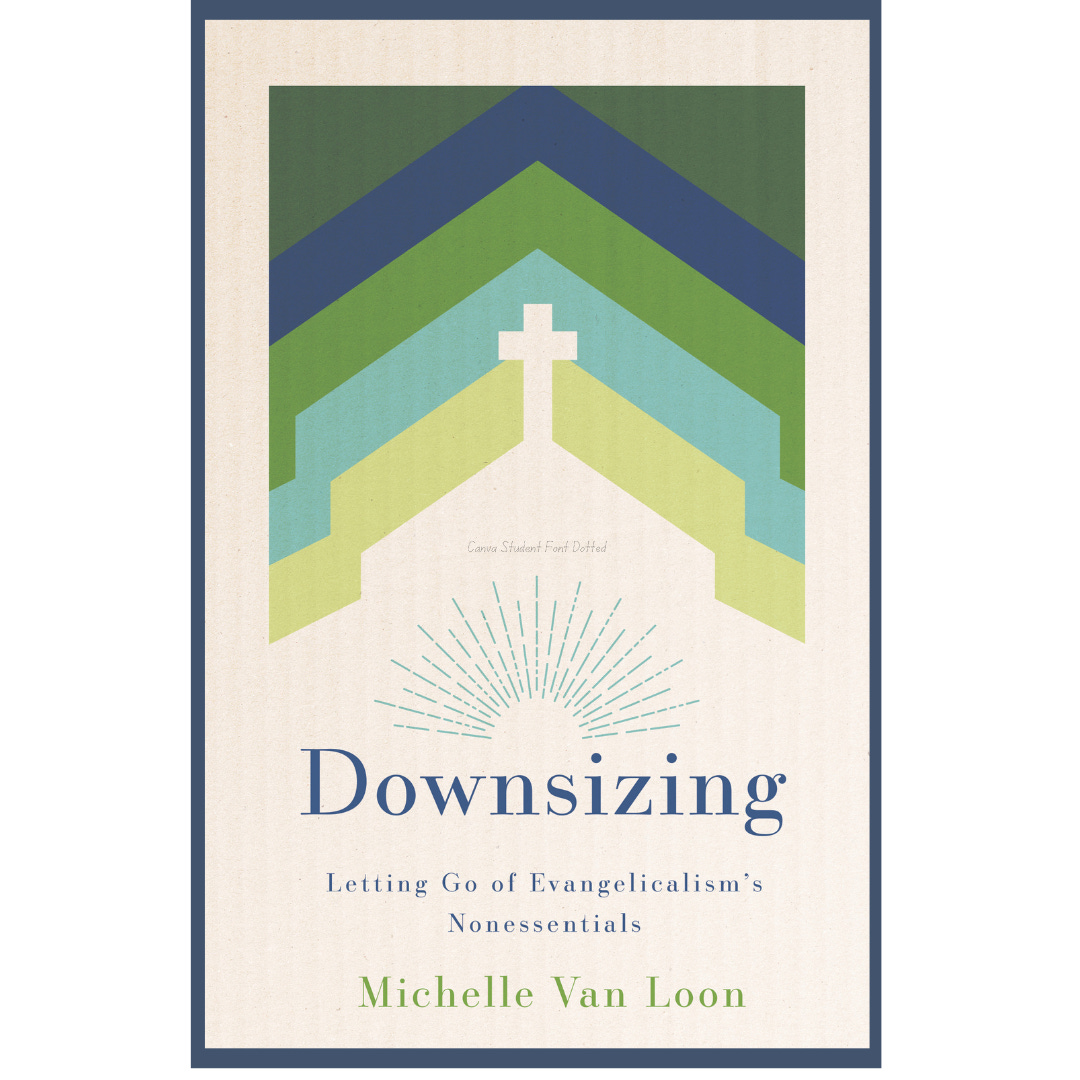If the word “repent” conjures images of 1980’s street preachers with bullhorns yelling “Turn or burn!” at passing crowds, I’d like to use a bit of imagination and longing to offer an alternative portrait, below–and I’d welcome your feedback on the scene I describe. I’ve also got a couple of updates on projects I’m excited to share with you. Please read on, friends!
The platform at the front of church sanctuary was empty. The church’s remaining leaders stood on the main floor, eye level with the congregation. One spoke on behalf of the group: “We’ve come before you to repent. We’ve sinned against a holy God and we’ve sinned against you, his people,”
Most of the congregation knew that the pastor had resigned a few weeks earlier. At the time of that announcement, the leadership team read a vague statement about the pastor feeling led to pursue other ministry opportunities in a distant state. The carefully-orchestrated goodbye was choreographed so as not to raise any alarm among church members.
It worked. Few outside of the people now standing before the congregation knew the truth about the double life of the pastor that included years of adultery and substance abuse when he wasn’t giving inspiring sermons, doing marriage counseling (!), and playing games with the kids during Vacation Bible School.
But these leaders now standing before the church had known the truth about him for years. They’d rationalized their coverup by telling themselves they were working with him behind the scenes to get him the help he needed and were protecting his family from gossip. They’d convinced themselves they were doing this all for the sake of the church.
Over time, his sins grew ever more egregious and they finally, finally found the courage to ask him to leave. After he departed, it was as though blinding sunlight had pierced the tomb-like gloom of the room in which they gathered for their meetings for years. When had it become so dark? They hadn’t noticed; one compromise after another had dimmed their vision gradually.
One tender soul in that first meeting after the pastor left town confessed to the other leaders that the years of living a double life before the congregation had eaten away at his faith – all because he loved being an insider with access to power in the church. Then another spoke up to share her conviction that they’d enabled evil to flourish in their midst. Eventually, each person in the room added their confession, some with tears. When the group ran out of words, there was nothing more to say except, “We’ve sinned against a holy God and we’ve sinned against his people.”
This shared experience led the group onto the narrow road of repentance which brought them before the congregation that day. Each leader confessed to the congregation their role in the ongoing coverup, and named the action steps they were going to take going forward which included resignations, facilitating a search guided by a respected outside organization for both a new pastor and developing a new leadership team, and inviting those who’d been wounded by the coverup to tell their stories and seek their forgiveness, They brought in counselors trained in religious trauma to offer workshops that would help the church process what had happened. They committed to bless each person who left the congregation after this. And a number did leave.
Though it wasn’t a happy ending to the years of toxic coverup, it was a healthy beginning in a whole new direction – which is the essence of repentance. .
Repentance is an individual act, yes, but Scripture emphasizes throughout that it is also a corporate response to a holy God. The Old Testament is ribboned with prophetic calls to Israel to return to the worship of the One true God, the specific words of redirection to various congregations in the Epistles, and the commendations and corrections to the churches named in Revelation 2-3. In the first century, Jesus stepped into public ministry with the proclamation, “Repent, for the kingdom of God is near” (Mt 4:17). His hearers would have understood the word repent (metanoeo in Greek) as a word used by military leaders to tell their troops to change course.
In my decades in the Evangelical world, on the rare occasions when I have seen it happen at all, it is often a quick, one-time emotional purge followed by a quick return to the regularly-scheduled program instead of an ongoing process of honest, humble repair and redirection. I can think of churches I’ve attended where leaders covered for a pastor embroiled in sin, treating it solely as his/her issue, without centering the damage done to the victims or exposing the role the congregation’s social systems and orbit of enablers played in cultivating the problem. And while there is an obvious need for corporate repentance in cases of abuse, that is not the only issue that might call for this kind of public spiritual about-face. Financial mismanagement, bad teaching, neglect of the “little ones” who are a part of the community, callousness toward the poor and marginalized, enmeshment in politics…what corporate sins would you add to this list?
I don’t believe churches need to be in a state of perpetual self-flagellation. But I do believe the humility of ongoing self-examen, appropriate public confession, and embracing the value of corporate repentance might be the mark of a healthy community that truly believes that those willing to lose their lives will find eternal life, those who recognize they need a doctor can find healing, and those who admit they are sinners can find forgiveness.
Have you understood repentance primarily as an individual act? What has your experience been with corporate repentance? I’d love to hear your thoughts on the topic!
PREORDER YOUR COPY TODAY!
Downsizing: Letting Go of Evangelicalism’s Nonessentials is releasing on August 19th. Your preorder will ensure you get your copy the moment it hits the streets.
This book offers a look at some of the major branches and movements within Evangelicalism that had influence during the last half-century in both church and culture. The publisher’s description captures the tone of what I wrote: “Simultaneously critical and hopeful, Downsizing encourages readers to reflect on their own experience with evangelicalism, evaluate the movement’s legacy, and participate in shaping its future.” This is a conversation that includes those who are still in the Evangelical world, those who’ve shaken the dust from their feet as they’ve exited it, and everyone else who is trying to make sense of how we got to this crossroads moment in the church. This conversation needs you!
Please consider preordering your copy today. Use the button below to order from Amazon, or reach out to your favorite bookseller or the publisher to reserve your copy.
IT’S GO TIME!
Dr. Marlena Graves and I have an official start date for our next writing cohort! We will begin right after Resurrection Sunday, on April 22nd. There are many different courses for writers, but we believe we offer something unique to those who come to work with us - we undergird our instruction with a focus on spiritual formation (salt) in conjunction with nurturing writers with practical, honest coaching in the area of writing (ink) to bring your authentic voice and message to church and culture (society).
Could this be the season for you or someone you know to partner with the Salt & Ink Society to develop your message in community? Click the button below to visit our website, and please pass on the word to the communicators you know who are looking for experienced coaching and a thoughtful community in which to grow.
I leave you this month with this beautiful prayer from W. David O. Taylor’s Prayers for the Pilgrimage: A Book of Collects for All of Life:
O Lord, you whose love is without measure, help us, we pray, to love as you love, by befriending the friendless, defending the defenseless, caring for the careless, and showing mercy to the merciless, so that we might become your beloved community in word and in deed this day. We pray this in the name of our Messiah King, Jesus Christ himself. Amen.
Photo by Alex Shute on Unsplash












You made very valid points in this essay. The sad thing is, I think many within a church would be so uncomfortable in the process, they would leave the church. I wonder who would be the most qualified to lead such a community process. Could the wrong person do further harm?